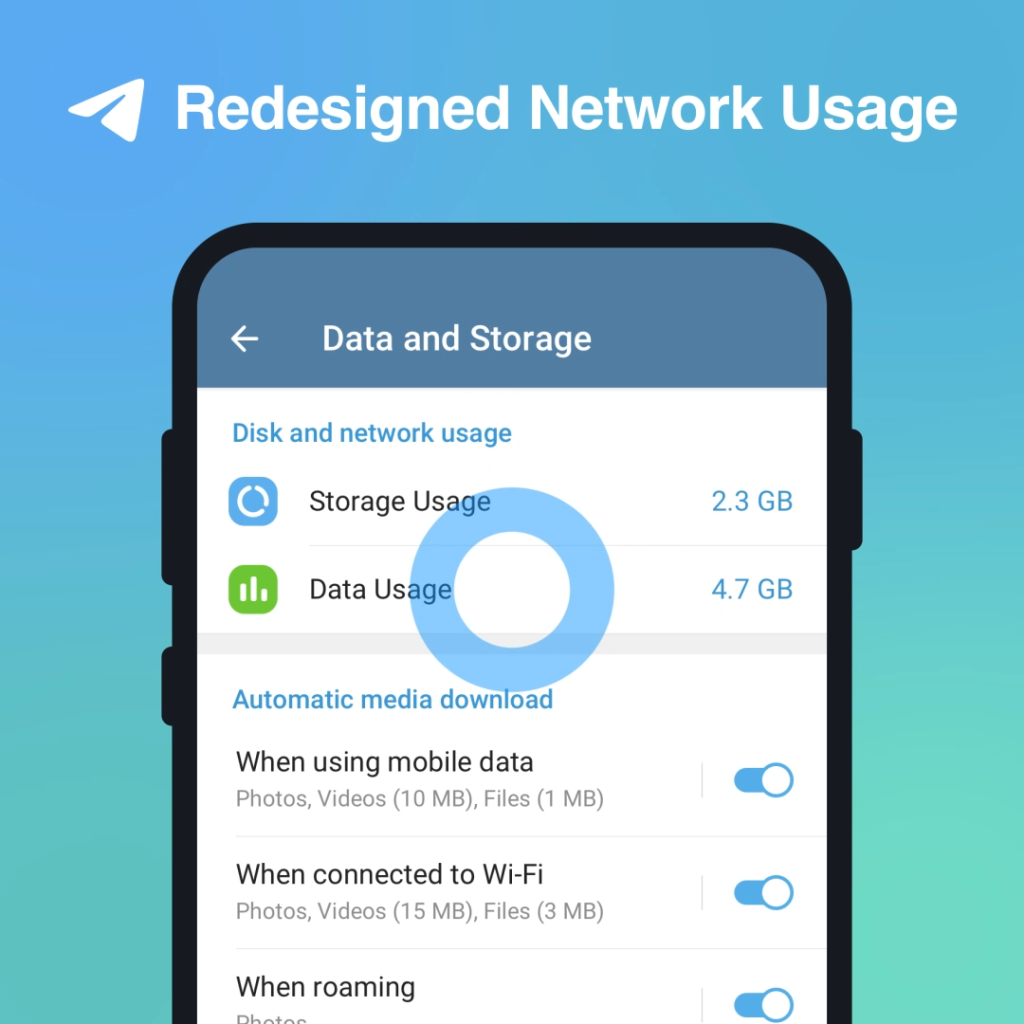
Trust Wallet itself does not enforce a minimum deposit, but each cryptocurrency network may have its own minimum transaction requirements.
Understanding Trust Wallet Deposits
Definition of Minimum Deposit
A minimum deposit in Trust Wallet refers to the smallest amount of cryptocurrency that must be sent to your wallet for the transaction to be processed and recognized. This threshold is often determined by the network of the specific cryptocurrency being used and can vary depending on the asset.
- Network Requirements: Each blockchain network may impose its own minimum transaction limits to ensure efficient processing and to avoid spam transactions. These limits help maintain the overall health and efficiency of the network.
- Wallet Policy: Trust Wallet itself does not enforce a minimum deposit requirement; however, it must adhere to the rules set by the underlying blockchain networks it supports. Therefore, any minimum deposit is a reflection of these network rules rather than a policy imposed by Trust Wallet.
- Exchange Policies: If you are transferring funds from an exchange to your Trust Wallet, the exchange may also have its own minimum withdrawal limits which need to be considered alongside the network’s minimum transaction amount.
Why Minimum Deposits Matter
Understanding the concept of minimum deposits is crucial for anyone using Trust Wallet to manage their cryptocurrency transactions. Here are several reasons why minimum deposits matter:
- Transaction Efficiency: Minimum deposits help ensure that blockchain networks run efficiently. Small, insignificant transactions can clog the network, leading to slower processing times and higher fees for all users. By setting a minimum transaction amount, networks can maintain a balance between usability and performance.
- Fee Considerations: Every cryptocurrency transaction involves network fees. Ensuring that your deposit meets the minimum requirement helps avoid situations where fees consume a significant portion of your transaction, making it uneconomical.
- Successful Transactions: Depositing less than the minimum required amount can result in failed transactions. This can be frustrating and might involve additional steps to retrieve or resend the funds. Understanding and adhering to minimum deposit requirements helps ensure your transactions are successful.
- Security and Spam Prevention: Minimum deposit requirements act as a deterrent against spam and potential abuse of the network. By setting these thresholds, networks can reduce the number of microtransactions that could otherwise be used to exploit or overload the system.
- User Experience: For users, knowing the minimum deposit requirements can help in planning and executing transactions more effectively. It avoids the hassle of dealing with failed transactions and ensures a smoother experience when managing digital assets in Trust Wallet.

Cryptocurrency-Specific Minimums
Bitcoin Minimum Deposit
Bitcoin, being the most widely used cryptocurrency, has its own set of minimum deposit requirements dictated by the Bitcoin network and various platforms interacting with it.
- Network Minimum: The Bitcoin network itself does not have a hard minimum deposit requirement, but it does impose a minimum transaction fee to prevent spam. This fee ensures that miners will include the transaction in a block. Practically, this means sending extremely small amounts (below a few hundred satoshis) may not be feasible as fees would exceed the transaction amount.
- Exchange and Wallet Policies: Exchanges and wallets, including Trust Wallet, may enforce their own minimum deposit amounts to ensure transactions are economically viable. This is typically around 0.0001 BTC but can vary by platform.
- Impact of Network Fees: When making a deposit, it’s essential to account for the network fees. If the amount sent is too small, the fee might consume a significant portion of the transaction, making it inefficient or even causing it to fail.
Ethereum Minimum Deposit
Ethereum also has specific considerations for minimum deposits due to its network structure and the additional functionality of smart contracts.
- Network Minimum: Similar to Bitcoin, the Ethereum network does not have a strict minimum deposit requirement, but there are minimum gas fees that must be met to process a transaction. Gas fees are paid to miners for including the transaction in a block, and these fees vary based on network congestion.
- Exchange and Wallet Policies: Most exchanges and wallets will have their own minimum deposit limits for Ethereum, typically around 0.01 ETH. These limits help ensure that the transaction is economically viable after accounting for gas fees.
- Gas Fees: When sending Ethereum, it’s crucial to consider the current gas prices. High network congestion can lead to higher gas fees, which might make small transactions inefficient. Ensuring that the deposit amount sufficiently covers these fees is essential for a successful transaction.
Factors Affecting Minimum Deposits
Network Fees
Network fees are a crucial factor in determining the practicality and success of minimum deposits in cryptocurrency transactions. These fees are paid to miners or validators who process and confirm transactions on the blockchain.
- Dynamic Fee Structure: Both Bitcoin and Ethereum networks use a dynamic fee structure that adjusts based on network demand. When network activity is high, fees increase, making small transactions less economical.
- Transaction Priority: Higher fees typically result in faster transaction confirmations. Miners prioritize transactions with higher fees, meaning that low-fee transactions may experience significant delays or may not be confirmed at all during times of congestion.
- Fee Calculation Tools: Trust Wallet and other platforms often include fee estimation tools that help users determine the appropriate fee for their transaction. Utilizing these tools ensures that the transaction is processed efficiently and avoids being stuck in the mempool (the pool of unconfirmed transactions).
- Impact on Small Transactions: For very small transactions, network fees can constitute a large percentage of the total transaction amount, potentially exceeding the amount being sent. This makes it important to consider whether the transaction amount is worth the network fee.
Transaction Speed
Transaction speed is another critical factor that can affect the feasibility of minimum deposits. The speed at which a transaction is confirmed can vary based on several elements, including network congestion and the fee attached to the transaction.
- Confirmation Times: Transactions with higher fees are processed more quickly because they are prioritized by miners. Conversely, transactions with lower fees may experience delays, especially during periods of high network activity. This can be problematic for minimum deposits, as delayed transactions might affect time-sensitive transactions or cause frustration for users.
- Network Congestion: Both Bitcoin and Ethereum networks can become congested, especially during market surges or popular token events (like ICOs or NFT drops). During these times, even transactions with average fees might be delayed, affecting the speed and reliability of deposits.
- Gas Limits and Prices (Ethereum): For Ethereum transactions, the gas limit and gas price play a crucial role in transaction speed. Setting an adequate gas limit and competitive gas price ensures that the transaction is processed in a timely manner. Insufficient gas settings can result in failed transactions or significantly delayed confirmations.
- Blockchain Specifics: Different blockchains have varying speeds and fee structures. While Bitcoin and Ethereum are widely used and often congested, other blockchains like Binance Smart Chain or Solana may offer faster and cheaper transactions. However, the choice of blockchain depends on the specific cryptocurrency being used and supported by Trust Wallet.

How to Check Minimum Deposit Requirements
Using Trust Wallet App
Trust Wallet provides tools and resources within the app to help users understand the minimum deposit requirements for various cryptocurrencies. Here’s how you can check these requirements using the Trust Wallet app:
- Open Trust Wallet: Launch the Trust Wallet app on your device.
- Select Cryptocurrency: Navigate to the specific cryptocurrency you want to check the minimum deposit requirement for. This can be done by selecting the cryptocurrency from your wallet’s main screen.
- Access Transaction Details: Tap on the “Receive” button for the chosen cryptocurrency. This section often provides detailed information about depositing funds, including any minimum deposit requirements.
- Review Deposit Information: Look for any notes or messages indicating the minimum deposit amount. Some cryptocurrencies may explicitly state this information within the wallet interface.
- Transaction History: Review past transactions to understand the successful deposit amounts. If you have previously made deposits, compare these amounts to gauge an approximate minimum threshold.
- In-App Support: Utilize the in-app support or help section if the minimum deposit information is not readily visible. Trust Wallet offers support features where you can find FAQs or contact support for specific queries about deposit requirements.
Checking Official Sources
For the most accurate and updated information on minimum deposit requirements, it’s also essential to check official sources related to Trust Wallet and the specific cryptocurrency you are using. Here’s how to do it:
- Trust Wallet Website: Visit the official Trust Wallet website (trustwallet.com). Look for sections such as FAQs, support, or help guides where minimum deposit information might be provided.
- Cryptocurrency’s Official Website: Each cryptocurrency typically has an official website or documentation that outlines transaction requirements, including minimum deposit amounts. For example, visit the official Bitcoin or Ethereum websites for network-specific details.
- Blockchain Explorers: Use blockchain explorers like Etherscan (for Ethereum) or Blockchain.com (for Bitcoin) to research transaction details and network requirements. These platforms often provide insights into transaction limits and fee structures.
- Exchange Platforms: If you are transferring funds from an exchange, check the exchange’s website or support section for withdrawal limits and minimum deposit requirements for specific cryptocurrencies. Exchanges often have their own guidelines that must be adhered to.
- Community Forums: Participate in community forums such as Reddit, BitcoinTalk, or Trust Wallet’s own community page. Experienced users and developers frequently discuss transaction requirements and can provide practical advice.
- Social Media and Announcements: Follow Trust Wallet’s official social media channels (Twitter, Telegram) for updates and announcements. These platforms can provide timely information about any changes in deposit requirements or new features.
- Customer Support: Contact customer support for specific queries. Both Trust Wallet and individual cryptocurrency projects usually offer support via email or live chat, where you can ask about minimum deposit requirements directly.

Comparing Minimum Deposits with Other Wallets
Trust Wallet vs. Coinbase Wallet
When comparing minimum deposits between Trust Wallet and Coinbase Wallet, it’s essential to consider the different features and policies of each platform.
- Trust Wallet:
- Network-Dependent Minimums: Trust Wallet does not enforce its own minimum deposit amounts but adheres to the minimum transaction requirements set by each blockchain network. Users need to be aware of these network-specific limits when making deposits.
- Wide Cryptocurrency Support: Trust Wallet supports a vast array of cryptocurrencies, each with its own network-imposed minimums. This means the minimum deposit can vary significantly depending on the chosen asset.
- Decentralized Control: As a non-custodial wallet, Trust Wallet gives users full control over their private keys and funds, without additional minimum deposit policies imposed by the wallet itself.
- Coinbase Wallet:
- Minimums Set by Coinbase: Coinbase Wallet, while also non-custodial, might have different minimum deposit guidelines influenced by its integration with the Coinbase exchange ecosystem. Users transferring funds from Coinbase Exchange to Coinbase Wallet need to adhere to the exchange’s withdrawal limits.
- User-Friendly Interface: Coinbase Wallet aims to simplify the user experience, potentially offering clearer guidelines on minimum deposits directly within the app interface.
- Exchange Integration: For users who frequently interact with the Coinbase Exchange, minimum deposit amounts might be more straightforward and integrated, making it easier to understand transaction requirements.
Trust Wallet vs. MetaMask
MetaMask is another popular non-custodial wallet, primarily used for interacting with Ethereum and other EVM-compatible blockchains. Comparing it with Trust Wallet provides insights into their respective minimum deposit policies.
- Trust Wallet:
- Multi-Blockchain Support: Trust Wallet supports multiple blockchains beyond Ethereum, including Binance Smart Chain, Solana, and more. Each blockchain has its own minimum deposit requirements, which are followed by Trust Wallet.
- Comprehensive Feature Set: Trust Wallet offers integrated DApp browsing, staking, and multi-chain support, which can influence how users manage minimum deposits across different networks.
- MetaMask:
- Ethereum-Focused: MetaMask primarily supports Ethereum and other EVM-compatible chains like Binance Smart Chain and Polygon. Minimum deposits are therefore aligned with the gas fees and transaction requirements of these networks.
- Gas Fees Management: MetaMask provides detailed control over gas fees, allowing users to adjust fees to meet network requirements, which can impact the practicality of small deposits.
- Advanced User Control: MetaMask users often have more granular control over transaction parameters, which can help in optimizing transactions to meet minimum deposit thresholds effectively.

Common Issues with Minimum Deposits
Deposits Below Minimum
Depositing amounts below the required minimum can lead to several issues, including transaction failures and loss of funds. Here’s how to identify and handle these issues:
- Unrecognized Deposits: If the deposited amount is below the minimum required by the network or the wallet, it may not be recognized, leading to a failed transaction. The funds may not appear in your wallet balance.
- Network Fees Impact: For very small deposits, network fees can consume a significant portion of the transaction, making it uneconomical or causing the entire transaction to fail.
- No Reimbursement: In many cases, deposits below the minimum threshold are not refundable. This means that the sent funds could be lost permanently if the transaction does not meet the network’s or wallet’s requirements.
Solutions:
- Verify Minimum Requirements: Before making a deposit, always check the minimum deposit requirements for the specific cryptocurrency. Use Trust Wallet’s app or official sources to get accurate information.
- Include Fees in Calculation: When calculating the amount to send, include the network fees to ensure the net amount meets the minimum deposit threshold.
- Double-Check Before Sending: Always double-check the amount and the receiving address before initiating a transaction to avoid sending amounts below the minimum requirement.
Handling Failed Transactions
Failed transactions can occur due to several reasons, including network congestion, insufficient fees, or incorrect transaction parameters. Here’s how to handle failed transactions effectively:
- Identify the Cause: Understanding why the transaction failed is the first step. Common reasons include:
- Insufficient Fees: The network fee attached to the transaction may be too low, causing miners to ignore it.
- Network Congestion: High network activity can delay transactions, especially if the fee is not competitive.
- Incorrect Parameters: Errors in the transaction details, such as incorrect gas limits for Ethereum transactions, can lead to failures.
- Increase Fees: If the transaction failed due to low fees, try resending with a higher fee. Trust Wallet’s fee estimator can help determine an appropriate fee based on current network conditions.
- Adjust Gas Limits: For Ethereum transactions, ensure that the gas limit is set correctly. Trust Wallet typically suggests a default gas limit, but adjusting it based on the transaction complexity can help.
- Check Transaction Status: Use blockchain explorers like Etherscan (for Ethereum) or Blockchain.com (for Bitcoin) to check the status of your transaction. These tools can provide detailed information about why a transaction might be pending or failed.
- Contact Support: If you are unable to resolve the issue on your own, contact Trust Wallet support for assistance. Provide them with the transaction ID and other relevant details to help them diagnose and resolve the problem.
- Retry the Transaction: After addressing the underlying issue, retry the transaction. Ensure that all parameters are correct and that you have included sufficient fees.

Best Practices for Deposits
Verifying Deposit Amounts
Ensuring that you deposit the correct amount is crucial for successful cryptocurrency transactions. Here’s how you can verify deposit amounts effectively:
- Check Minimum Requirements: Before making any deposit, verify the minimum deposit requirements for the specific cryptocurrency you are using. This information can be found on the official Trust Wallet website, within the app, or through the cryptocurrency’s official documentation.
- Include Network Fees: When determining the amount to send, remember to account for network fees. The total amount should be sufficient to cover both the deposit and the applicable transaction fees.
- Use Accurate Conversion Rates: If you are converting from one cryptocurrency to another, ensure you use up-to-date and accurate conversion rates. Trust Wallet provides real-time exchange rates, but double-checking with other reliable sources can help.
- Double-Check Amounts: Before confirming a transaction, double-check the amount entered. This is especially important for large transactions or when copying amounts from another source.
- Confirm with Recipient: If you are sending funds to another person or service, confirm the required amount with the recipient to ensure it meets any minimum deposit requirements or expectations.
Ensuring Sufficient Network Fees
Network fees, also known as transaction fees, are essential for processing transactions on the blockchain. Ensuring you include sufficient network fees can help avoid delays and failed transactions.
- Understand Fee Structures: Different cryptocurrencies have different fee structures. For example, Bitcoin uses a fee per byte model, while Ethereum uses gas fees. Understanding these structures can help you set the appropriate fee for your transaction.
- Use Fee Estimators: Trust Wallet and other platforms often include fee estimation tools. These tools provide suggested fees based on current network conditions, helping you choose a fee that ensures timely processing.
- Monitor Network Conditions: Network fees can vary based on network congestion. During peak times, fees can be significantly higher. Use blockchain explorers or Trust Wallet’s built-in tools to monitor current network conditions and adjust fees accordingly.
- Set Competitive Fees: To ensure your transaction is processed quickly, set a fee that is competitive with other transactions being processed at the same time. Trust Wallet’s fee estimator can help you determine a fee that balances cost and speed.
- Adjust for Priority: If your transaction is time-sensitive, consider setting a higher fee to prioritize faster confirmation. For less urgent transactions, a lower fee might be acceptable, but be prepared for potential delays.